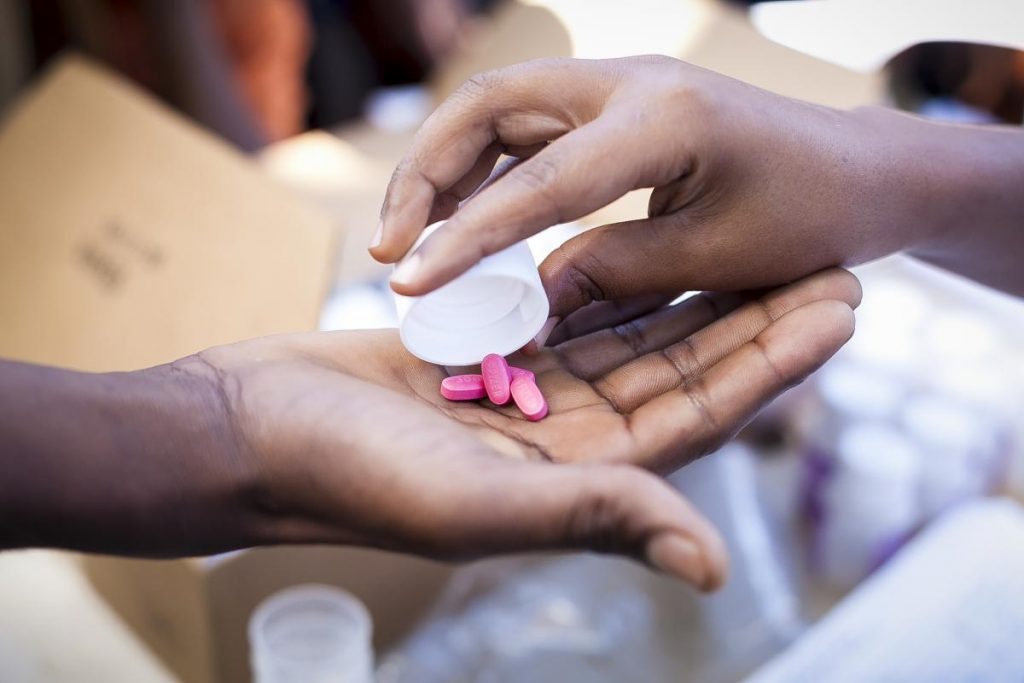New study to assess STI testing and treatment strategies for young women in South Africa

The University of Washington Department of Epidemiology (UW Epi) Assistant Professor, Dr. Jennifer Balkus, received an R01 grant from the US National Institutes of Health to assess integration of point-of-care sexually transmitted infection (STI) testing and patient-delivered partner treatment for cisgender young women aged 16-25, who are at risk for HIV and other STIs in South Africa.
Young women in South Africa have one of the highest HIV-1 incidence rates globally. While effective biomedical interventions now exist that can prevent HIV infection, such as pre-exposure prophylaxis (PrEP), young women at risk for HIV-1 may also experience high rates of treatable STIs, such as chlamydia and gonorrhea, an issue that Dr. Balkus and her research team aim to address with this study.
“In many parts of the world, capacity for diagnostic STI testing is limited. Instead, STIs are managed syndromically with individuals receiving treatment based on symptoms they report to healthcare providers,” explained Dr. Balkus. A key challenge with this approach is that most women with an STI do not report symptoms thus would not receive treatment for their infection. Early diagnosis is important, because even without symptoms, untreated STIs can cause long lasting harms, including infertility.
UW Epi is partnering with the Wits Reproductive Health and HIV Institute (Wits RHI) in Johannesburg, South Africa for the project, which evolved out of observations from previous research collaborations. Dr. Balkus, and co-Principal Investigator, Dr. Thesla Palanee-Phillips, Director of Clinical Trials at Wits RHI, observed high rates of asymptomatic STIs in young women while working on clinical trials for HIV prevention, including studies on the dapivirine vaginal ring and a range of contraceptive methods.
“My team and I are excited to partner with Dr. Balkus on this grant, since we recognize the potential impact the outcomes may have on policy and young women’s lives in South Africa,” said Dr. Palanee-Phillips.
Young women who are open to taking oral PrEP for HIV prevention will be invited to participate in this study. Participants will receive STI testing and receive their results on-site; those diagnosed with an STI will receive treatment for themselves and their partner(s), without requiring their partner(s) to seek diagnosis and treatment, an approach known as patient-delivered partner therapy. Young women will participate in the study for up to one year and will continue to receive regular screening and treatment for STIs, as needed.
“Patient-delivered partner therapy is an effective and efficient way to provide partners with STI treatment and has been shown to reduce recurrence of STIs in the United States and other settings,” said Dr. Balkus.
Qualitative interviews with participants, as well as their partners, will help researchers and policymakers understand the facilitators and barriers to providing patient-delivered partner treatment. “The goal is to evaluate both the uptake and acceptability of patient-delivered partner therapy,” Dr. Balkus explained. “How will young women feel about talking with their partners about patient-delivered partner therapy? Will their partners take treatment? What approaches do young women want to see put in place to help improve care for sexual health?”
Researchers will also examine the cost of point-of-care testing and patient-delivered partner therapy. This will provide valuable information for local ministries of health so that they can assess cost factors of reducing STIs in their communities.
“The genesis of the project was collaborative and locally driven which is really important for ensuring not only the success of its implementation, but that the information collected will provide the evidence needed to support potential changes in policy,” Dr. Palanee-Phillips emphasized. “As STI testing becomes more widely available in South Africa and other settings with a high STI burden, findings from our project could aid public health agencies regarding how patient-delivered partner therapy could be incorporated as an additional STI treatment and prevention strategy.”
Drs. Balkus and Palanee-Phillips are joined by an all-women team of co-investigators from the UW School of Public Health (SPH) and Wits RHI, including UW SPH researchers: Dr. Ruanne Barnabas (DGH, Allergy & Infectious Diseases, Epi), Dr. Jennifer Ross (DGH, Allergy & Infectious Diseases), Dr. Jennifer Velloza (DGH, Epi Alum), and Dr. Elizabeth Brown (Biostatistics, Fred Hutch); and Krishnaveni Reddy, co-investigator from Wits RHI.